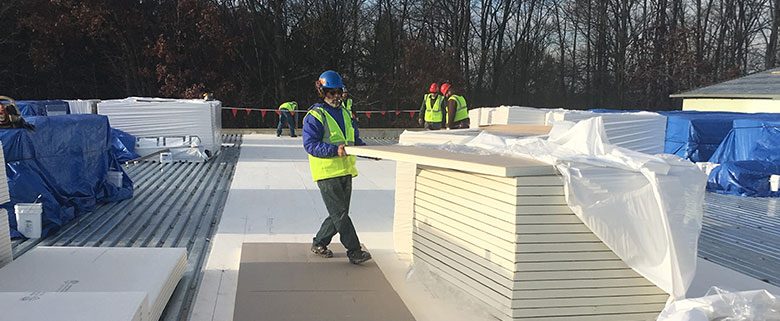Why Quality Matters: Choosing the Right Commercial Construction Partner

You’ll face costly repairs, operational disruptions, and safety risks when you choose the wrong commercial construction partner. Poor workmanship leads to structural failures, HVAC breakdowns, and electrical issues that interrupt your business and drain revenue. Quality contractors protect your investment through proper licensing, proven track records, financial stability, and strong safety compliance. They communicate effectively, manage timelines professionally, and understand your operational requirements. The right partnership criteria can save you from expensive mistakes and long-term headaches.
The True Cost of Poor Construction Quality
When you cut corners on construction quality, you’re not just risking immediate problems—you’re setting yourself up for years of costly repairs, operational disruptions, and potential safety hazards.
Poor workmanship leads to structural failures, HVAC breakdowns, and electrical issues that’ll drain your budget. You’ll face business interruptions while emergency repairs happen, losing revenue and productivity.
Insurance claims from shoddy construction can spike your premiums. Code violations result in fines and forced renovations.
What seems like savings upfront becomes a financial nightmare. Quality construction protects your investment, guarantees employee safety, and maintains operational efficiency for decades.
Essential Criteria for Evaluating Commercial Contractors
Five fundamental criteria separate exceptional commercial contractors from mediocre ones, and evaluating these factors will protect your project from the costly disasters we’ve just discussed.
First, examine their licensing, insurance, and bonding status—these aren’t negotiable requirements.
Second, review their portfolio of completed projects similar to yours in scope and complexity.
Third, analyze their financial stability through credit reports and references.
Fourth, assess their safety record and OSHA compliance history.
Finally, evaluate their communication style and project management approach during initial meetings.
These criteria form your defense against poor workmanship, delays, and budget overruns that plague inadequately vetted partnerships.
Red Flags That Signal an Unreliable Construction Partner
While proper evaluation criteria help identify quality contractors, certain warning signs should immediately disqualify potential partners from consideration.
Avoid contractors who can’t provide current licensing, insurance documentation, or local references.
Be wary of considerably low bids that seem too good to be true—they usually are.
Contractors requesting large upfront payments or pressuring you to sign immediately raise serious concerns.
Poor communication, missed appointments, or inability to answer basic project questions indicate unprofessionalism.
Finally, steer clear of contractors with unresolved legal disputes, recent bankruptcies, or consistently negative online reviews from verified clients.
Key Questions to Ask Before Signing Your Contract
How thoroughly should you investigate a contractor before committing to a partnership?
Ask these essential questions before signing any contract.
What’s their track record with similar projects?
Can they provide recent client references?
Do they carry adequate insurance and proper licensing?
What’s their typical project timeline and how do they handle delays?
How do they manage change orders and cost overruns?
What’s their safety record and protocols?
Who’ll supervise daily operations?
How do they communicate progress updates?
What warranty do they offer?
Will they provide a detailed breakdown of costs?
These questions reveal whether you’re dealing with a reliable, professional partner.
Building Long-Term Success Through Strategic Partnership Selection
Beyond the immediate project at hand, you’re investing in a relationship that can define your company’s construction success for years to come.
Strategic partnership selection means finding contractors who understand your business model, growth trajectory, and operational requirements. Look for partners who’ve demonstrated consistent performance across multiple projects and maintain strong financial stability.
They should offer scalable services that adapt as your needs evolve. The right partner becomes an extension of your team, anticipating challenges and providing proactive solutions.
This long-term approach reduces costs, streamlines future projects, and creates a reliable foundation for your company’s continued expansion and success.
Frequently Asked Questions
How Long Does the Average Commercial Construction Project Take to Complete?
Commercial construction company timelines vary considerably based on your project’s size and complexity.
Small projects typically take 3-6 months to complete, while larger developments can require 12-24 months or more.
What Insurance Coverage Should a Commercial Construction Partner Carry?
Your construction partner must carry general liability, workers’ compensation, professional liability, and builder’s risk insurance.
Don’t forget to verify they’ve got adequate coverage limits and that their policies are current before signing contracts.
How Do Weather Delays Typically Impact Commercial Construction Timelines and Costs?
Weather delays can extend your project timeline by weeks or months, increasing labor costs, equipment rental fees, and material storage expenses.
You’ll face budget overruns averaging 10-20% when severe weather disrupts construction schedules unexpectedly.
What Permits Are Required for Most Commercial Construction Projects?
You’ll need building permits, electrical permits, plumbing permits, and mechanical permits for most projects.
Depending on your location and project scope, you might also require environmental, zoning, or specialty permits before construction begins.
How Often Should Progress Meetings Be Scheduled During Commercial Construction?
You should schedule progress meetings weekly during active construction phases.
If you’re managing complex projects, consider bi-weekly meetings.
For critical milestones or problem-solving, you’ll need more frequent check-ins to maintain momentum and address issues promptly.
Conclusion
You’re investing in more than just a building—you’re shaping your business’s future. Don’t let poor construction quality derail your vision or drain your budget. Take time to thoroughly vet potential partners, ask tough questions, and trust your instincts when red flags appear. The right commercial contractor, like AH Construction, won’t just deliver a structure; they’ll become a strategic ally who understands your goals and helps bring them to life.



